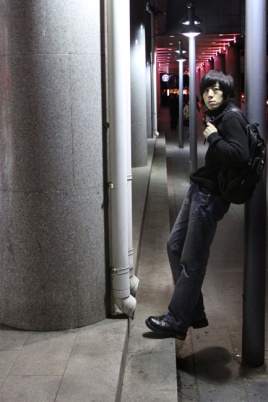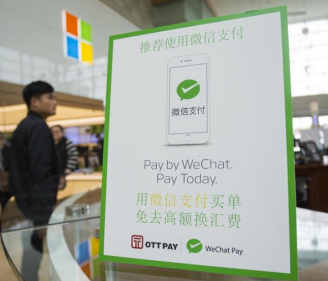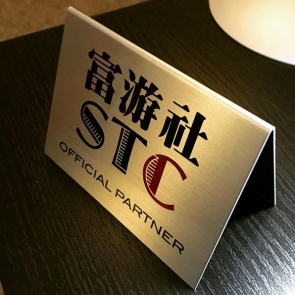 They speak English now (Just in case you didn’t notice).
They speak English now (Just in case you didn’t notice).
They are the millennial Chinese travelers in the United States.
They are the Chinese tourists coming to discover the United States of America and to buy high quality Made in USA products.
They are the Chinese businessmen and businesswomen coming to invest in American companies and create U.S. jobs.
They are the smart Chinese millennial entrepreneurs coming to America to create start ups and contribute to America’s leadership in future technologies.
They are the Chinese guests fed up to be disrespected in luxury hotels when asking if they really can afford to pay for a suite when they ask for one and are offered first the cheapest room available.
They are the Chinese businessmen walking into a bespoke suit company in New York City and asking for a hand made in America suit because they also deserve to wear the finest clothes. (No, they are not only interested in “I Love NY” Made in China T-shirts)
They are the Chinese travelers annoyed to be depicted by U.S. marketing agencies as using only Chinese social media networks such as Weibo and WeChat, when they are actually using Instagram, Twitter and Facebook to stay in touch with their U.S. friends and freely discover the world.
They are the tourists who have spent $40Billion in the U.S. in 2016
They are the LGBTQ+ Chinese travelers wanting to be as respected as any other tourist and find safe places to just be who they are.
They are the Chinese shoppers who find utterly ridiculous when Western luxury brands add a dragon or a Chinese symbol on a watch or a handbag and expect that they’ll specifically want to buy this model.
They are the Chinese tourists who are grateful for the warm welcome they have received by American people when they were doing horseback riding or cowboy shooting. (Yes, they are not only obsessed by shopping in large shopping malls but want to discover the various aspects of America’s culture and heritage).
They are the Chinese travelers who are proud of their Chinese cultural heritage and Chinese language, but who also speak English and prefer to read in English original stories about the United States.
They are the Chinese travelers who are fluent in English and understand exactly what some people say about them when they are traveling overseas.
Actually, they are exactly the same as any other traveler in America.
By Pierre Gervois, Founder of Gervois Hotel Rating, Publisher of Gervois Magazine, Hospitality & tourism keynote speaker and expert about marketing to outbound Chinese tourists.
 Citcon, the integrated payment and marketing platform, announced a strategic partnership to enable brands in North America to accept
Citcon, the integrated payment and marketing platform, announced a strategic partnership to enable brands in North America to accept  Among the biggest trends among China’s luxury travelers is the growing popularity of boutique hotels, according to the ILTM Asia event in Shanghai.
Among the biggest trends among China’s luxury travelers is the growing popularity of boutique hotels, according to the ILTM Asia event in Shanghai. According to
According to